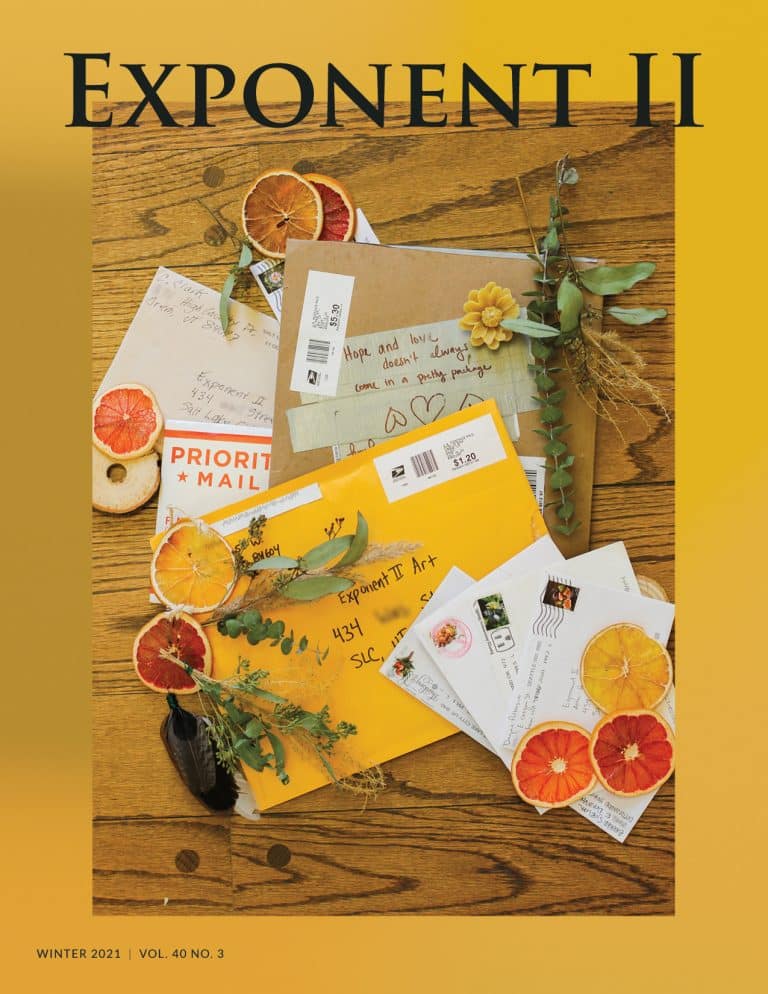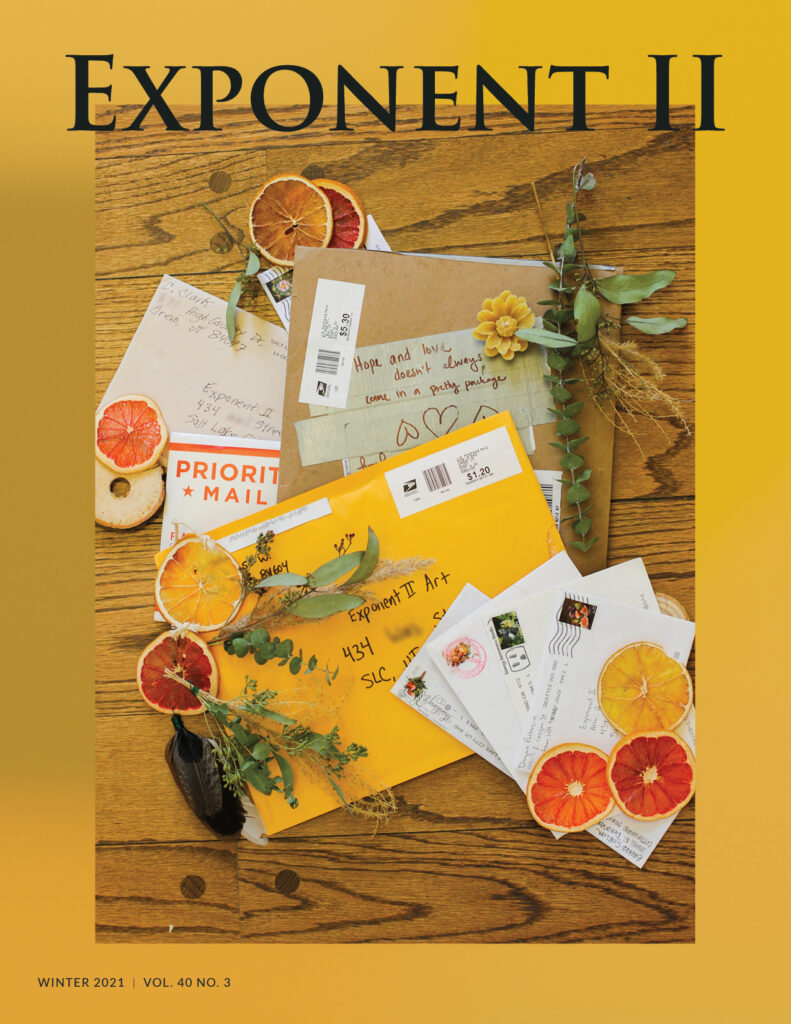The following is the Winter 2021 Letter from the Editor by Managing Editor Pandora Brewer. This annual contest issue features all kinds of letters as well as dozens of postcard art images. If you would like to receive this issue, please subscribe by January 15, 2021.
Dear Exponent Reader,
As I write this letter, I imagine you reading it. You discover the magazine in the mailbox, and paging through, pause to peruse these words in your front yard, in your kitchen, maybe even later that night propped against your pillow before falling asleep. I wonder what you are not doing so that you might take these few minutes. What activity you have arranged for the kids or what meeting is on mute. We have found this moment together in our busy lives to share, me in writing to you, you in choosing to read.
I wish I could lift this message from the page and envelop it in its own wrapping, inviting you to rip the seal, slide out the paper, and unfold like a treasure map. Letters are not essays. Letters speak directly, in that unique mix of first and second person voice, more like talking than writing. Letters seem handwritten even when typed. They can be read over and over, allowing the words to seep in slowly, whether the sender and receiver see each other every day or haven’t spoken in years. In a world of digital immediacy, letters are a different communication path altogether. Within their scrawled grace, in and out of thickets of thought, we move without knowing exactly where we are going. In our search for each other, we always find our way.
We write letters to find love. I met the boy I wanted to marry, then got engaged to another. Realizing my mistake, I tried to reconcile with the first boy, but he was leaving to study abroad within weeks. This was before email, before text, when long distance calls were too expensive to consider. So we wrote letters. On yellow legal pads in oversized longhand loops of consciousness, I detailed my adventures in a new job and new city, on my own for the first time. And in spider fine, indecipherable runes on airmail paper, he transcribed what he was learning and why it mattered to him. We revealed, sheet after sheet, the selves beneath the surface of dating culture and expectations that had caused rifts in the relationship. A year in letters, echoing a long history of such correspondence. Some of the most beautiful writing on record is between lovers; anticipating, longing, apart yet together, clinging to a stack of paper tied with a ribbon.
We write letters to say thank you. When our hearts are near bursting, the gratitude flows from mind to hand and onto the page, articulating in words that swirl and glow. Crammed on a small card, clutching a pen without autocorrect, we try to fit this exclamation of joy – thank you for this one thing and for everything. Your act of kindness made a difference. A letter to acknowledge, to reinforce, to celebrate our best selves.
We write letters to make connections. In this strange year when we see less of each other in person and more of each other on screen, exchanging letters is a continuation unaffected by a pandemic. Unlike that vague frustration we feel in the just-perceptible delay in a video feed, we write and send a letter knowing our person will receive it later. Our contest this winter was to share narratives in the form of letters. A challenge that marks and transcends separation, demonstrating the ancient and yet ever relevant potential to move someone from alone to belonging in the space of “Dear” and “Yours Truly.”
The letters we received, and you will read, reach out to a wide range of recipients. Jennifer Doxy asks in Letter to Oscar Wilde what he has learned of the human soul as he has moved through this life and into the next. Amy Sorensen’s letter writer is the omniscient voice of the feminine divine bringing comfort and strength to her mortal daughter in Motherhood is Not Your Only Making. In Katherarina Magdalena, Millie Tullis writes to a pioneer girl distant and yet not so far from what they both know about power and lack of power in their lives. Noah’s wife shares advice in her letter called Never Marry a Prophet, by Naomi Home. Luiza Kulchetscki explores fundamental questions of existence and belief in Dear God. Expanding the conversation through time, Julie Touvi writes letters to her daughter in The Box. Throughout are postcards created by artists, each creating their version of a 6×4 space waiting for a message.
What is most important to share in this letter about letters? You, the reader, complete a process that begins with an idea – shaped, visualized, printed – surrounding you in that moment when you open the cover. You react with a smile or a frown, bringing a question to the dinner table to discuss. You are who we imagine turning every page and we write and envision every word, every color, every line just for you.
Sincerely,
The Exponent II Editors



